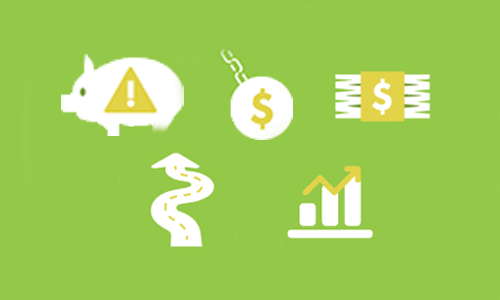Financial Advice Young Adults Should Consider
The thought of investing may be a scary one. Instead of investing money and watching it grow - or decrease - some younger individuals likely find it easier to not get involved at all.

However, investing is more than beneficial, perhaps even more so than you may realize, particularly when it comes to retirement. Play your cards right, and you will have a good chunk of money saved when you decide to stop working.
Yet, confusion may linger over exactly how to start investing. If you're a younger individual, don't think of investing as something that only involves the stock market, but rather you're investing in your future. Here are some tips to help you:
Set a budget
You don't want to invest your entire savings account. Instead, start with a minimum amount you'd like to start with. Some services require a minimum deposit to get started, which ranges from as low as $50 to the more usual amounts of $3,000.
The same applies for monthly budgets. Don't spend more than you take in, and you will avoid large amounts of debt.
Prepare for emergencies
Everyone should have an emergency account that contains about three to six months of income. This money, which should be in a savings account, will collect interest since it will not be used often. It should also be easily accessible.
Manage your debt
The quicker you take care of your existing debt, the more money you'll save by not having to pay interest.
Retirement matters
Even though you're young, it's never too early to start thinking about retirement. The money invested today in your 401(k) will be more valuable 10 years from now.
Keep in mind that Social Security is not enough to live comfortably once you stop working.
Take chances
As much as we're taught to save our money, you will want to find the right balance between playing it safe and taking chances. Investing in stocks can result in a huge payoff, but proper investing mixes stocks with mutual funds and bonds.
Member FDIC
